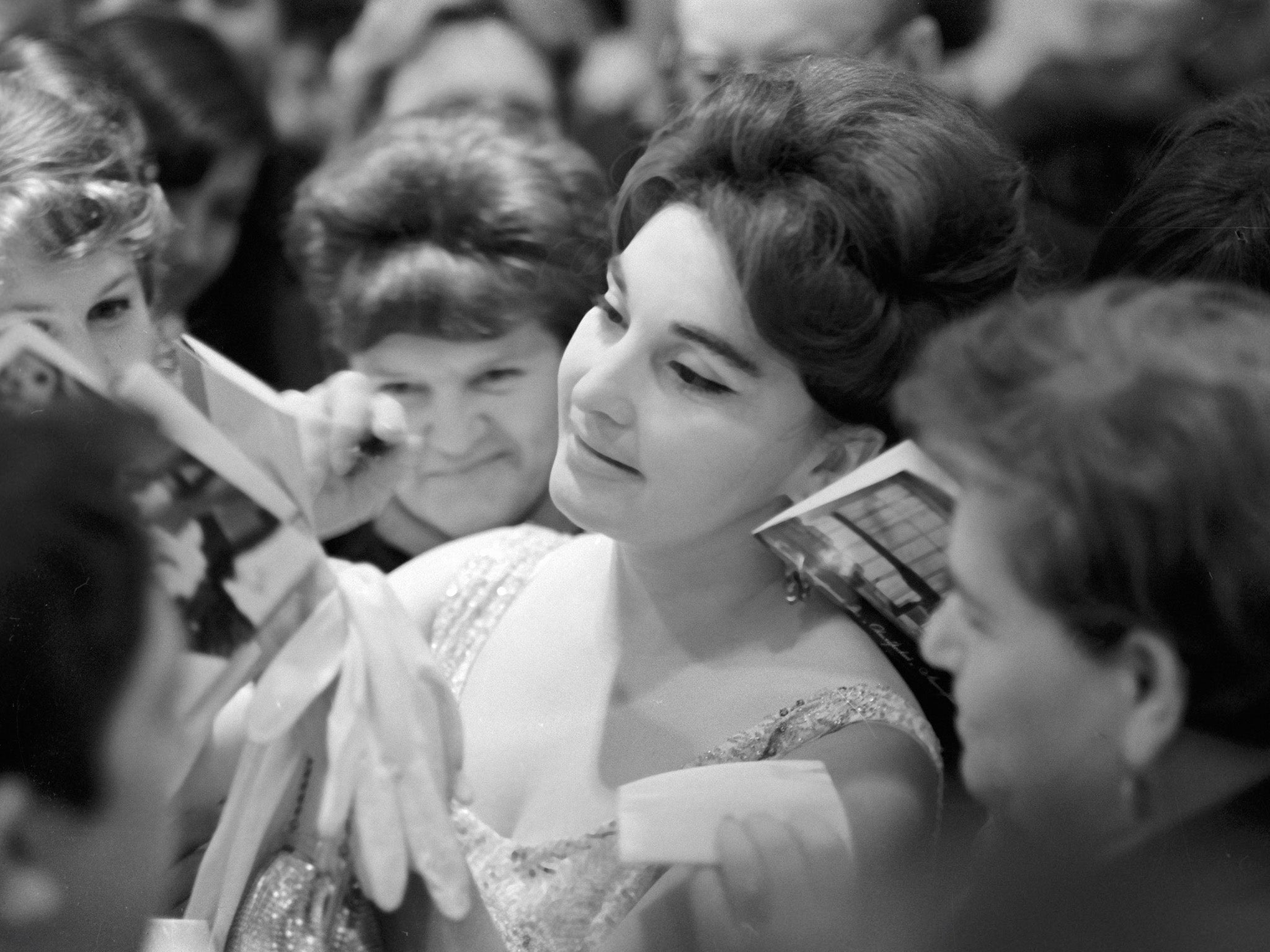Leila Abashidze: Georgian actress who became a star of Soviet cinema
Bucking a tradition of weeping willows on screen, the strong women she played owed much to her own formidable personality

Your support helps us to tell the story
From reproductive rights to climate change to Big Tech, The Independent is on the ground when the story is developing. Whether it's investigating the financials of Elon Musk's pro-Trump PAC or producing our latest documentary, 'The A Word', which shines a light on the American women fighting for reproductive rights, we know how important it is to parse out the facts from the messaging.
At such a critical moment in US history, we need reporters on the ground. Your donation allows us to keep sending journalists to speak to both sides of the story.
The Independent is trusted by Americans across the entire political spectrum. And unlike many other quality news outlets, we choose not to lock Americans out of our reporting and analysis with paywalls. We believe quality journalism should be available to everyone, paid for by those who can afford it.
Your support makes all the difference.Being a female film star in the Soviet Georgia most often meant being beautiful, feminine – and fragile.
But Leila Abashidze, who has died aged 88, became a household name without playing a model housewife, a decent communist, a shy youngster or an oppressed peasant liberated by the Soviets.
Her characters were different; they were feisty, heartwarming and chirpy.
Her fans admired her for exuding a sense of freedom, her unique ability to portray free spirits and tomboy, happy-go-lucky characters without a trace of fakeness.
Her career started as a child actor, when her aunt took her to cast for a role of a naughty girl at the Central Cinema pavilion, in the outskirts of Tbilisi, the capital of what was then Georgian Soviet Socialist Republic.
In interviews she recalled that she could not sit still and was asked to leave the room where other girls, all immaculately dressed and softly spoken, patiently remained, awaiting their turns.
Rather than walking downstairs, the eight-year-old quickly jumped on the railings to slide down, and by a stroke of luck was seen by the director, who gave Abashidze her first role in Kajana, alongside Nato Vachnadze.

It was 1941: a big pause in cinema production was going to come with the Soviet Union getting involved in the Second World War.
After the war, however, Abashidze gained a number of small parts and went on to become one of the biggest stars of the Soviet silver screen, starring in films such as They Came from Mountains in 1954 and Maia Tskneteli in 1959, and the Japanese-funded Full Circle in 1987.
In 1990 she played her last film role – the collapse of the USSR brought Georgian cinema to another major hiatus.
Throughout the Fifties, Sixties and Seventies she was a darling of Soviet cinema, even though she had come from a family of “enemies of the people” – her father was sent to Siberia in 1937 and, in order to be close to him, her mother served there as a nurse.
Unlike most other cinema stars, Abashidze never acted in a theatre, never taught acting, and had no other career. The life of a Soviet cinema star was glamorous, but very limited in terms of opportunities. So she often said her life passed in “waiting, waiting for another role, waiting for a phone call, waiting to be called and invited”.
After the collapse of the Soviet Union there was just waiting, no more roles, no more movies.
She wrote scripts and tried directing, but nothing worked.
Still recognised by people in the streets, she would go back to her quiet home, with no telephone ringing, no one knocking on her doors with offers.
When she walked the streets of Tbilisi, she always dressed every inch the star, standing out in any crowd, with her full cinema makeup and distinct fashion style. Her fans, who approached her for autographs, said she told them she was still hoping the tide would turn and she would be offered new roles.
But that never happened; directors felt she belonged to the Soviet cinema. She tried hard to communicate that there was more to her, that she could still act, but she only appeared in front of a camera in rare TV interviews. She used every opportunity to say that she had once defeated the Soviet barriers and was hoping she would have another chance.
Abashidze should, perhaps, be remembered for trying to break free of perceptions in life, as she did on screen.
Leila Abashidze, Georgian actress, born 1 August 1929, died 8 April 2018
Join our commenting forum
Join thought-provoking conversations, follow other Independent readers and see their replies
Comments